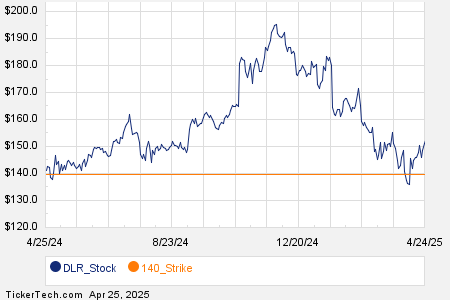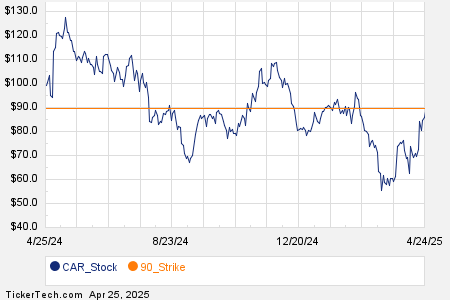General Electric, the American industrial powerhouse, has undergone an extensive transformation due to a slew of challenges, from over-diversification and aggressive growth to poor leadership and financial woes, worsened by the subprime mortgage crisis. To reverse its fortunes, the company undertook strategic debt reduction, streamlined its core businesses, instituted operational simplification measures, and ultimately split into three publicly traded entities.
Within CEO Larry Culp’s slice-and-dice strategy, GE Healthcare Technologies Inc. (GEHC) was spun out in January last year to allow General Electric to focus on healthcare and medical technology innovation and growth. On April 2, GE spun off its energy solutions and turbine business as GE Vernova (GEV). The remaining entity adopted the name GE Aerospace (GE), which is the new “GE.” Consequently, General Electric’s gross debt was reduced by over $100 billion.
Widely lauded for their financial soundness and consistent performance, blue-chip stocks are generally shares of large, seasoned enterprises. In this article, we will delve into a comparative analysis of blue-chip spinoff stocks GE Healthcare and GE Aerospace – both of which are outperforming the S&P 500 Index’s ($SPX) 7.2% gains and the Nasdaq-100 Index’s ($IUXX) 5.6% returns on a YTD basis, and have significant upside potential to their mean price targets from analysts.
But which of the two is a better buy? Let’s find out.
The Case for GE Healthcare Stock
Chicago-headquartered GE Healthcare Technologies Inc. (GEHC), with a market cap of $39.4 billion, develops, manufactures, and markets products, services, and complementary digital solutions used in the diagnosis, treatment, and monitoring of patients in the U.S., Canada, and internationally.
GE Healthcare provides diverse products and technologies, like MRI and CT scanners, ultrasound devices, X-ray systems, and other patient care solutions. Its diagnostic imaging technologies allow for early and accurate disease detection, now boosted by artificial intelligence (AI), notably through the Edison platform, which enhances operational efficiency and improves diagnostics and patient care.
GE Healthcare shares have gained 13.6% on a YTD basis and 7.9% over the past 52 weeks. The company offers an annualized dividend of $0.15 per share, resulting in a dividend yield of 0.17%.

The stock currently trades at 19.99 times forward earnings – higher than the healthcare equipment industry median. However, its price/sales multiple of 2.01 is lower than the industry average.
GE Healthcare Beats on Q4 Earnings
Shares of GE Healthcare rose around 12% on Feb. 6 after it reported Q4 revenue of $5.2 billion, up 5.4% annually, beating Wall Street’s estimates by 2.2%. Its adjusted earnings of $1.18 per share surpassed analysts’ projections by 10.3%. Standout performances from GE Healthcare’s segments included 5% growth in Patient Care Solutions, 4% in Imaging, and 25% in Pharmaceutical Diagnostics revenues.
GE Healthcare expects fiscal 2024 free cash flow of approximately $1.8 billion. On an adjusted basis, GE Healthcare expects an annual profit between $4.20 per share and $4.35 per share
Analysts tracking GE Healthcare expect its EPS to grow 9.4% annually in fiscal 2024 to $4.30 from $3.93 in fiscal 2023. EPS is expected to increase further by 12.6% to $4.84 in fiscal 2025.
The healthcare equipment company is expected to report its first-quarter earnings results on April 30 before the market opens, with the consensus looking for a profit of $0.90 per share tomorrow morning. GEHC is up more than 2% this afternoon, pointing to a relatively upbeat mood ahead of the report.
GE Healthcare stock has a consensus “Moderate Buy” rating in the analyst community. Out of the 13 analysts covering GEHC, seven have a “Strong Buy” recommendation, and six rate it a “Hold.”

The average analyst price target for GE Healthcare is $96.58, which indicates a potential upside of 9.4% from current levels. Moreover, the Street-high price target of $110, shared by analysts at Mizuho and Argus Research, suggests 24.6% upside potential.
The Case for GE Aerospace Stock
Evendale, Ohio-based GE Aerospace (GE), with a market cap of $177.7 billion, is the world’s largest jet engine maker. Its output accounts for about 44,000 commercial aircraft engines – almost half the global fleet.
Plus, GE Aerospace has a defense and propulsion technologies arm that has about 26,000 engines in service. These engines power General Dynamics’ (GD) F-16 and Boeing’s (BA) F-15 fighter jets and the latter’s Apache and Sikorsky’s Black Hawk helicopters.
GE Aerospace stock has gained 61.3% on a YTD basis and 108% over the past 52 weeks – significantly more than GE Healthcare shares over the same periods.

The jet engine maker’s stock price surged after it declared a 250% dividend hike in early April. It paid a dividend of $0.28 per share on April 25, up from $0.08 per share. The company offers an annualized dividend of $1.12 per share, resulting in a dividend yield of 0.69%.
GE currently trades at 40.83 times forward earnings, a premium to the aerospace and defense industry median, but lower than its own five-year average of 49.73x.
GE Aerospace’s Robust Q1 Results
GE Aerospace reported better-than-expected Q1 revenue and earnings on April 23 – its inaugural report for fiscal year 2024 – showing a promising picture of the company’s trajectory. Its adjusted revenue grew 15% annually to $8.1 billion, while its consolidated adjusted EPS of $0.82 beat analysts’ projections by 22.4%.
GE Aerospace’s orders soared 34% annually to $11 billion, driven by demand in the Commercial Engines & Services and Defense & Propulsion Technologies segments,.
The company expects to achieve “low double-digit” growth in its adjusted revenue for fiscal 2024, while operating profit is expected to range between $6.2 billion and $6.6 billion. Its EPS is expected to be between $3.80 and $4.05. By 2028, GE Aerospace expects to generate $10 billion of operating profit, and pledged to hand back roughly 70% to 75% of excess cash to shareholders through dividends and up to $15 billion in buybacks over the next three years.
Analysts tracking GE Aerospace expect the company’s profits to surge 39.9% year over year to $3.93 per share in fiscal 2024. Its fiscal 2025 profit is expected to further grow by 22.7% to $4.82 per share.
GE Aerospace stock has a consensus “Strong Buy” rating in the analyst community, a step up from its “Moderate Buy” rating two months ago. Out of the 15 analysts covering GE, 13 have a “Strong Buy” recommendation, one says it’s a “Hold,” and one rates it a “Moderate Buy.”

The average price target of $177 for GE Aerospace indicates an upside potential of 7.6% from current levels. Moreover, the Street-high price target of $211, reiterated by Goldman Sachs (GS) last week, suggests a 28.3% upside potential.
GEHC vs. GE: Which Stock Is a Better Buy Right Now?
Both GE Healthcare and GE Aerospace have impressed Wall Street analysts with their solid performance, based on consensus “Buy” ratings and optimistic price target forecasts. However, with GE trading at its recent highs – and at nearly 5 times forward sales – GEHC looks like a better bargain right now.
That said, investors looking to avoid the binary risk associated with tomorrow’s earnings release from GEHC will want to wait until after the results are priced in to consider picking up shares. In the meantime, GE could be an appealing stock to buy in the event of a pullback.
On the date of publication, Sristi Suman Jayaswal did not have (either directly or indirectly) positions in any of the securities mentioned in this article. All information and data in this article is solely for informational purposes. For more information please view the Barchart Disclosure Policy here.
The views and opinions expressed herein are the views and opinions of the author and do not necessarily reflect those of Nasdaq, Inc.



